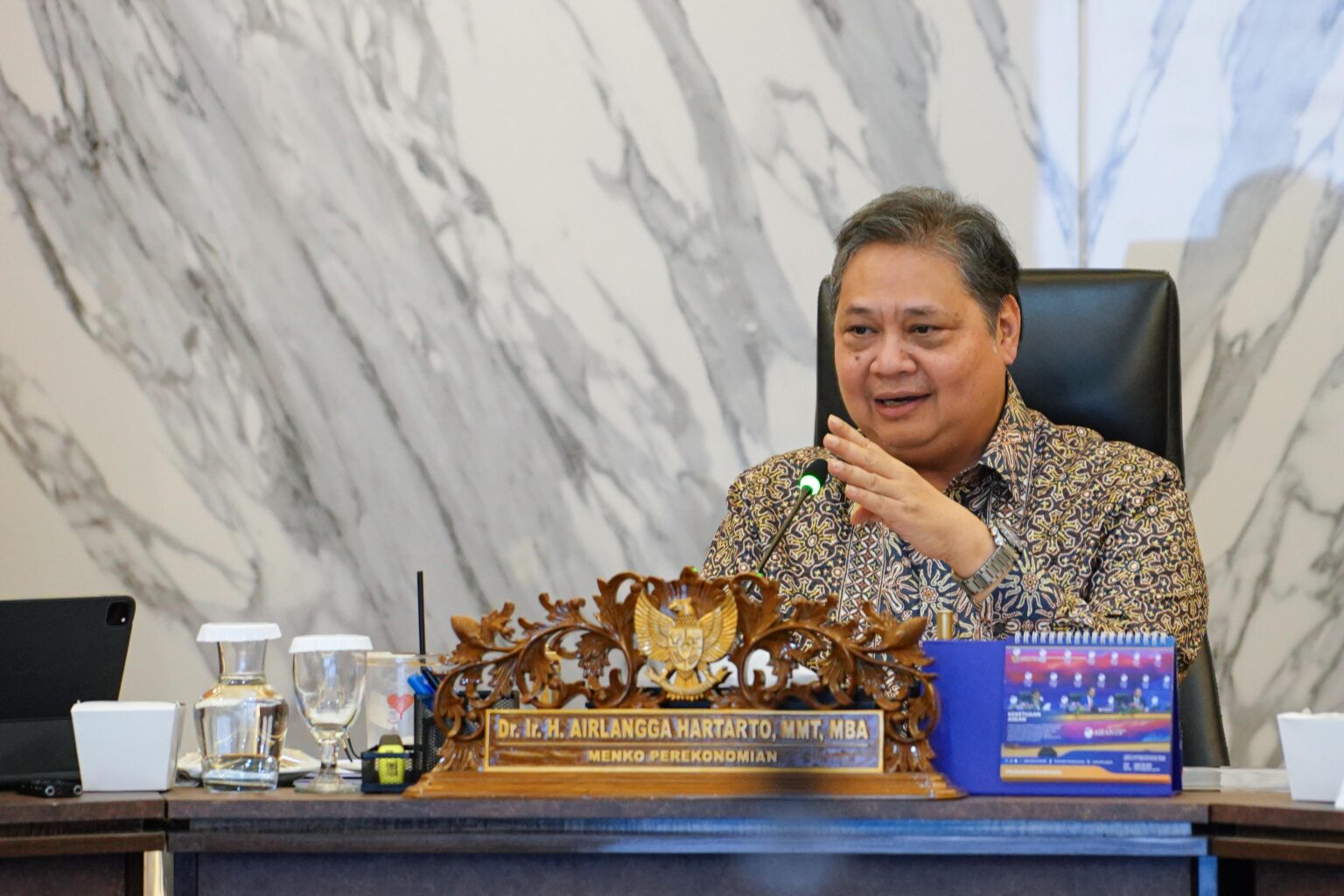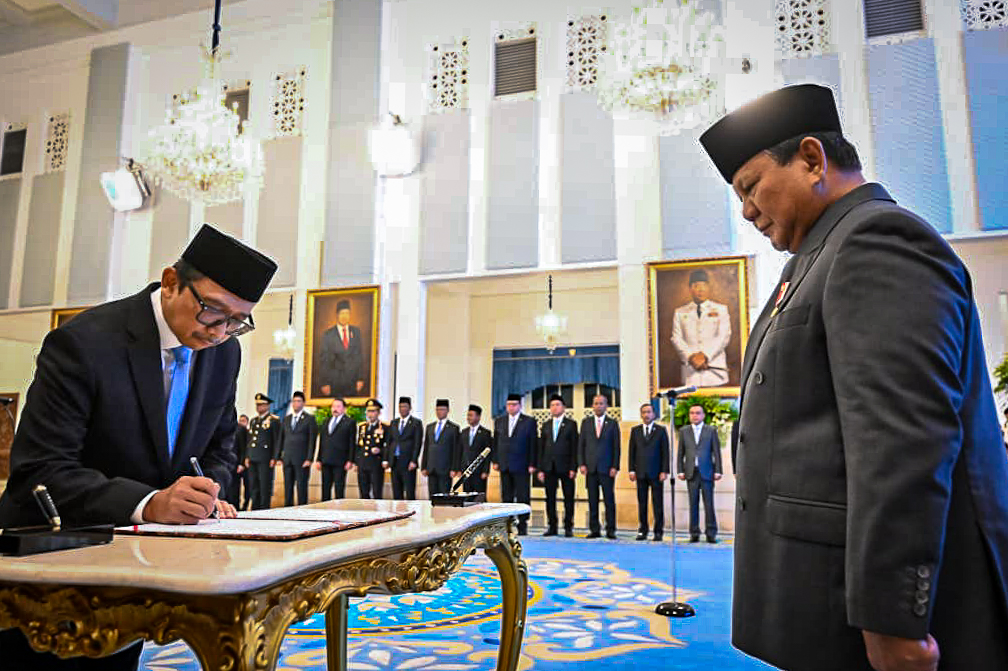Indonesia’s Inflation Remains Stable thanks to High Public Purchasing Power

Coordinating Minister for Economic Affairs, Airlangga Hartarto. (Photo by: ekon.go.id)
In line with the ongoing harvest season of various commodities in key production regions, Indonesia’s inflation rate in September 2024 remained low and stable. It was under control at 1.84% year-on-year (yoy), lower than the 2.12% yoy recorded in last August, and remained within the target range of 2.5% ± 1%. This achievement reflects the various measures of the Government, among others, by optimizing affordable market operations, facilitating food distribution, providing food assistance, developing food kiosks, and promoting interregional cooperation, which have been effective in maintaining price stability, particularly for food commodities.
Month-to-month deflation in September 2024 was mainly driven by the price decline in volatile food (VF), which recorded deflation of 1.34% mtm, as well as a decrease in government-regulated prices, particularly the reduction in fuel prices. The drop in the prices of several commodities, such as red chili, bird’s eye chili, eggs, chicken meat, and tomatoes, was driven by the ongoing harvest season in key production regions. Annually, the volatile food component still experienced inflation of 1.43% yoy, remaining within the target of under 5%, as outlined in the 2024 high-level meeting (HLM) of the Central Inflation Control Team (TPIP).
Meanwhile, the Farmer’s Exchange Rate (FER) Index continued to rise, reflecting farmers’ maintained purchasing power amidst declining food commodity prices. In September 2024, the FER was recorded at 120.30, rising 0.38% from the previous month. Notably, the sub-sector of plantation crops saw a significant increase of 1.72%, driven by the rising prices of palm oil, coffee, and rubber, in line with the global price trends. This indicates that government policies supporting the agricultural sector are functioning well and delivering positive benefits directly to farmers.
Core components, which reflect the public purchasing power, rose by 0.16% mtm or 2.09% yoy. This increase was primarily driven by increasing prices of ground coffee due to the rising global coffee prices and university tuition fees due to the new academic year. The increase in core inflation also aligns with the trend of rising consumer spending, as reported by state-owned Bank Mandiri in its September 2024 Consumer Spending Update. This suggests that the public continues to have high purchasing power, supporting the economic growth momentum.
In the meantime, government-regulated prices (administered prices/AP) experienced deflation of 0.04% mtm or inflation of 1.40% yoy, mainly due to a decrease in gasoline prices. Pertamina has reduced non-subsidized fuel prices since September 2024, which is still valid until October 2024. However, AP inflation was moderated by price increases in machine-rolled clove cigarettes and air transportation.
Rating and Investment Information, Inc. (R&I) has also reaffirmed Indonesia’s Sovereign Credit Rating at BBB+ with a positive outlook. This underscores international confidence in Indonesia’s economic prospects, which are projected to grow in the range of 5.0%-5.2% in 2024. The synergy between the Government and central bank Bank Indonesia has successfully maintained price stability and provided a solid foundation for sustainable economic growth.
However, challenges from the global economic slowdown have also affected domestic economic activities. Indonesia’s Purchasing Managers’ Index (PMI) remained in contraction territory at 49.2 in September 2024, though this was an improvement from 48.9 in August 2024. This achievement places Indonesia in a better position compared to several other ASEAN countries that experienced declines in manufacturing activity, such as Malaysia (from 49.7 to 49.5) and Thailand (from 52.0 to 50.4). The Government continues to optimize the policy implementation aimed at boosting the manufacturing industry, such as downstreaming natural resources, promoting the use of domestic products, encouraging import substitution, increasing exports, facilitating business and investment, as well as improving human resources and technology through the program of “Making Indonesia 4.0”.
The Government will continue to ensure sufficient food supplies, maintain price stability, and promote the recovery of vital sectors such as manufacturing, construction, and agriculture. With the various efforts and policies implemented by the Central Government, local governments, and Bank Indonesia, it is expected that price stability and economic growth will be sustained. (Bureau of Communications, Information Services, and Secretariat of the Ministry of Economic Affairs/ABD) (AY/MUR)








